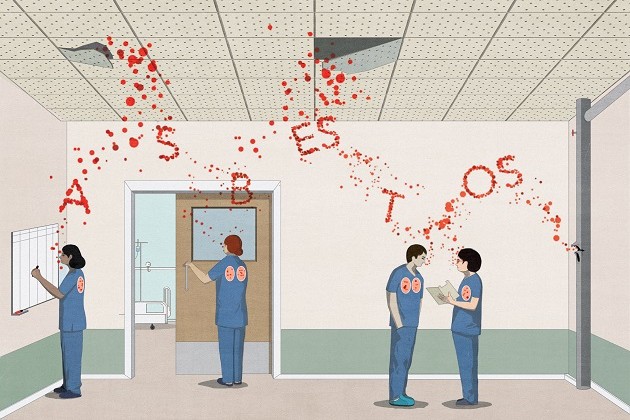The is now law. The RCN has consistently opposed this throughout the parliamentary process, and supported amendments that would have protected nursing staff. Get the lowdown on what it might mean for future nursing strikes in England, Scotland and Wales.
The law allows the UK government to set regulations that limit the right of working people to go on strike, in a number of sectors, including health care. Each time the government seeks to set new regulations, they must gain parliamentary approval.
The government is now seeking to use this anti-strike law to introduce rules that would directly limit the right of nursing staff in hospitals to go on strike, having already passed measures relating to nursing staff working in ambulance services.
Ministers previously told nursing staff these rules wouldn't apply to them. But in seeking to introduce regulations now which apply to hospital workers, nursing staff will be affected. We’ve expressed our anger and disbelief about this in our response to a government consultation about it.
What’s the latest?
The government has laid regulations before parliament setting out how minimum service levels will be applied to ambulance, border security and rail workers.
Now the regulations have been debated and approved by parliament, they will be implemented.
We’ve continued to campaign throughout this process, issuing briefings to parliamentarians and peers to urge them to vote against the regulations. Now the regulations have been approved for some workers (including our members working in ambulance services) the government is proposing measures that would apply to hospital workers too.
Our campaigning is far from over, and there will remain more opportunities to influence, whatever the outcome in the upcoming votes.
What’s the law now?
In health and other areas, the Secretary of State for Business and Trade has the power to set minimum service levels for periods of strike action.
In some circumstances, employers can issue "work notices" to unions, setting out who must work during a strike. Some employees may have to work during a strike. They could be sacked if they refuse.

There is no automatic protection from unfair dismissal for employees who choose to strike if they’ve been told to work as part of a work notice. However, the RCN is committed to only taking lawful strike action, and wouldn’t suggest anything that could jeopardise the employment of a member.
Employers can sue unions for losses if they don’t take “reasonable steps” to ensure work notices are adhered to. It effectively means unions themselves are required to actively encourage their members to break their own strikes.
Why did the government change the law?
The UK government says the legislation will protect the lives and livelihoods of the public by providing continued access to certain services during strikes. It therefore wanted to impose regulations to make some strikes less effective by requiring a base level of service. It essentially lost the argument with unions whose members were striking so legislated rather than negotiated to get its own way.
What’s the RCN’s stance on it?
The already makes it an offence to take industrial action in the knowledge or belief that human life will be endangered, or serious bodily injury caused. We believe the previous statutory arrangements are sufficient, and that actually, the new law is a distraction from the real issues at the heart of our ongoing dispute in which patients are being left unsafe every day by a chronic lack of investment in our health and care system.
The UK also already has some of the strictest anti-trade union laws in Europe and under existing legislation, people who take unlawful strike action can already be sacked.
The present UK government has previously passed the Lobbying and Trade Union Administration Act 2014 and the Trade Union Act 2016.
We opposed the law as it was being developed and called for it to be dropped after an independent review concluded it was “not fit for purpose”. We’re also fighting ongoing attempts to use this law to introduce rules that limit the freedom of nursing staff to strike.
Are there any other anti-strike measures?
The government has also said it wants to introduce steps that would allow employers to use temporary (agency) staff to cover roles affected during strikes. It sought to do this last year, but didn’t consult on it, which is a legal requirement. The government was defeated in a High Court challenge brought by joint unions and work on introducing the measure was paused.
Now, the government has launched a consultation to try to pursue the measure again.
It’s arguing it will help limit the impact of future strikes. But we believe it’s a deliberate attempt to break legitimate strike action and will only serve to undermine the right of union members to stand up for better pay and working conditions. We believe the measure is undemocratic and unsafe. Nursing is a highly skilled profession and staff can’t simply be swapped in to cover without thorough planning for the care needed.
Where does the legislation apply?
It applies in England, Scotland and Wales, but not in Northern Ireland – where trade union law is different. The measures introduced relating to ambulance workers apply in England only, following lobbying from the RCN.








